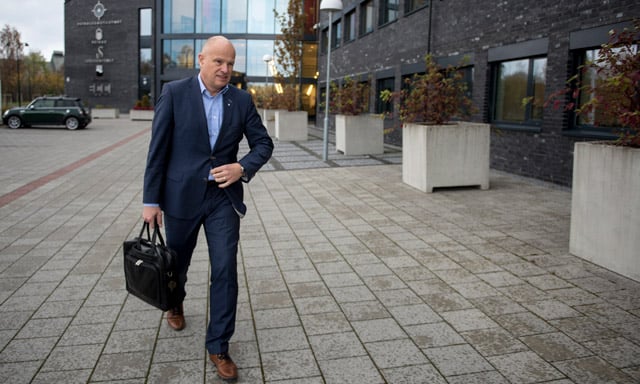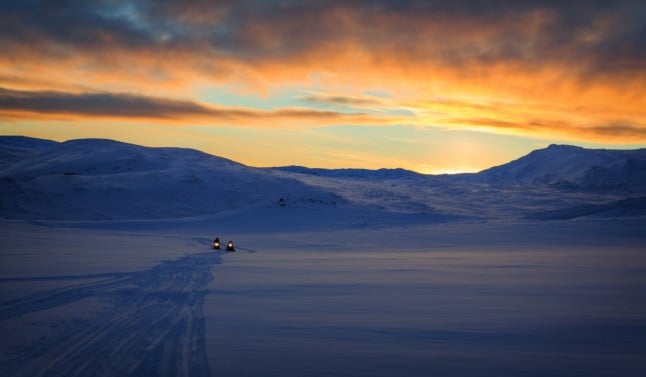OIL
Statoil further cuts investments amid drop in oil price
The Norwegian oil giant Statoil announced on Thursday a deeper cut to its investments this year after a third-quarter loss because of low oil prices.
Published: 27 October 2016 12:30 CEST

Statoil exec Arne Sigve Nylund arriving at the company's Stavanger headquarters on Thursday. Photo: Carina Johansen / NTB Scanpix
While the quarterly net loss reached $432 million against $348 million a year ago, Statoil slashed $1 billion in its investment expenditure forecasts, now amounting to about $11 billion.
The adjusted earnings dropped to $636 million, well below the $2 billion generated in the third quarter of 2015 and $957 million expected by analysts.
“The financial results were affected by low oil and gas prices, extensive planned maintenance and expensed exploration wells from previous periods,” said chief executive Eldar Saetre in a statement.
Statoil has implemented an aggressive savings programme, laying off staff and renegotiating supplier contracts.
“Strict prioritisation and continued good results from our improvement programme allow us to further lower our 2016 capex and exploration guidance,” Saetre said.
Statoil, 67 percent owned by the state, maintained its forecast production with organic growth expected at 1 percent per year from 2014 to 2017.
In the third quarter, production stood at 1.805 million oil-equivalent barrels per day (Mboe/d) against 1.909 million boe/day a year earlier, a decline due to maintenance work and deferral of gas sales.
Url copied to clipboard!


 Please whitelist us to continue reading.
Please whitelist us to continue reading.
Member comments